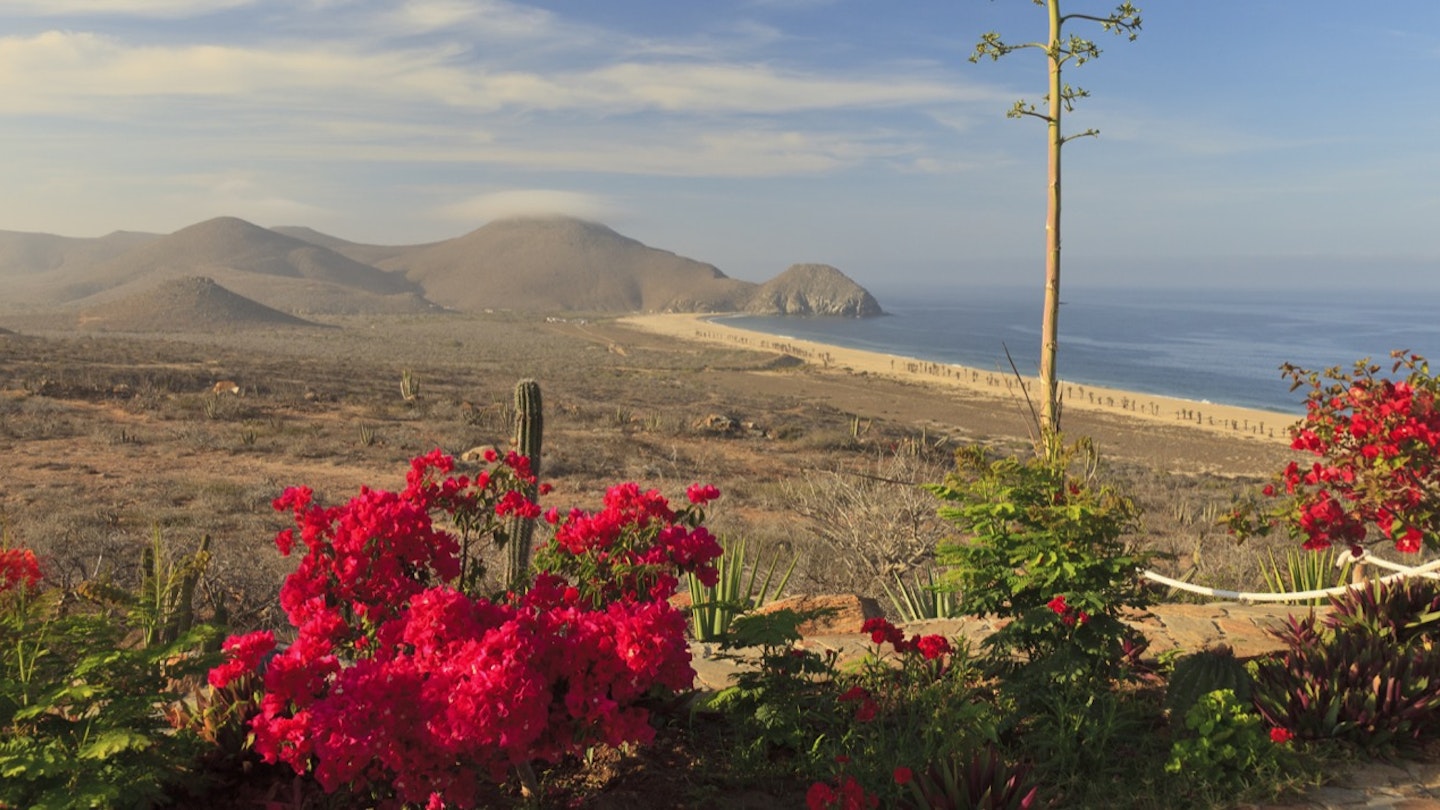Combating Ocean Plastic in Todos Santos and Pescadero
The town dump near Pescadero, Baja, Mexico was burning plastic trash, and MacKenzie Campbell was choking on the smoke. As an asthmatic, she decided it was time to take action by inviting local anti-plastic activist Mayra Gutierrez to speak in her community, rallying neighbors to tackle Baja’s plastic use problem.
In neighboring Todos Santos, Bryan and Sergio Jáuregui, owners of Todos Santos Eco Adventures, recognized that plastic waste was deterring tourists. Both Pescadero and Todos Santos are situated on the edge of the Sierra de la Laguna Biosphere Reserve, attracting visitors to swim with whale sharks, snorkel, hike, and bird watch. However, plastic waste littering the beaches is not what tourists want to experience.
Bryan Jáuregui invited Gutierrez to present on reducing single-use plastics in Todos Santos. The collaboration between Campbell and Jáuregui birthed an action group focused on significantly decreasing plastic consumption within their communities.
Ocean Plastic: A Global Challenge
Baja California Sur is home to 39% of the world’s total marine mammal species. Local sea lions often become entangled in plastic bags and packaging, facing severe harm or death from infection or strangulation. Additionally, one-third of the world’s whale and dolphin species frequent this region. Tragically, dead marine mammals frequently wash ashore with plastic-filled stomachs.
Over 430 bird species are endemic to Baja California Sur. According to National Geographic, 90% of seabirds are ingesting minuscule plastic pieces, mistaking them for food. The alarming reality is that local fish consumed by area restaurants are showing traces of plastic particles.
In 2018, Campbell and Jáuregui secured an Adventure Travel Conservation Fund grant for their initiative dubbed “Desplastificate Todos Santos y Pescadero.” They organized local business owners and introduced a “Five Turtle” rating system to evaluate single-use plastics consumption. Achievements were rewarded based on the reduction of plastic straws, bags, Styrofoam, and the implementation of recycling practices.
“We aimed to highlight the detrimental effects of excessive plastic usage on our community, wildlife, and environment, subsequently motivating individual and collective actions,” Jáuregui states.
Following initial assessments, Jáuregui had a flood of responses from local business that were eager to improve their turtle ratings.
Paving the Way for Sustainable Solutions
In a tourist area, transitioning away from single-use plastics can be challenging. Visitors are often hesitant to trust local water sources if not provided in sealed plastic bottles
“The major concern is the mistrust surrounding local water,” Jáuregui mentions. “Even when we posted educational signs, many tourists and restaurants hesitated to abandon plastic bottles.”
A transformative moment occurred when Barbara Manfrediz offered to install $750 water filtration systems in exchange for services through her business, Waterways Baja. Twenty-five businesses embraced this opportunity, eliminating single-use plastic water bottles.
Moreover, businesses needed alternatives to plastic and Styrofoam after committing to reduce plastic waste. Initially, these sustainable alternatives were scarce.
Desplastificate developed materials to educate tourists about the transition from single-use plastics while curating a local database of compostable product suppliers. Turtle-rated businesses received recognition through window decals and mobile applications, further promoted through local publications and social media platforms.
Empowering the Next Generation
While Jáuregui collaborates with businesses to reduce their ecological footprints, Campbell spearheads educational programs in schools, teaching students about the impacts of single-use plastics. In Todos Santos and Pescadero, students are informed about the environmental challenges posed by plastic waste and encouraged to become advocates for eco-friendly practices.
All twelve schools in the area are now equipped to eliminate plastics from their operations through initiatives promoting recycling and composting. “Our ambition is to assist schools in establishing a zero-waste model,” Jáuregui explains. The educational curricula developed feature games, videos, and even theatre performances to engage students effectively.
Looking Ahead: Phase II Initiatives
As the coalition progresses into the next phase, Jáuregui emphasizes the importance of procurement of resources to foster success in creating comprehensive composting and recycling systems. Her company, TOSEA, has implemented a zero-waste glamping operation within the Sierra la Laguna Biosphere Reserve.
The initial goal involved providing tools and information to help local businesses eliminate plastics within a set period. The current objective is to integrate effective waste management solutions, including composting initiatives.
So far, seven restaurants and nine hotels have achieved the coveted five turtle rating. The movement’s influence has inspired similar efforts in nearby towns, making strides towards a holistic zero-waste approach, with community leaders and local stores eager to join this necessary initiative.
Jáuregui states, “We’re enthusiastic about the turtles! The response is uplifting. Communities are motivated, and no one is saying no.”





